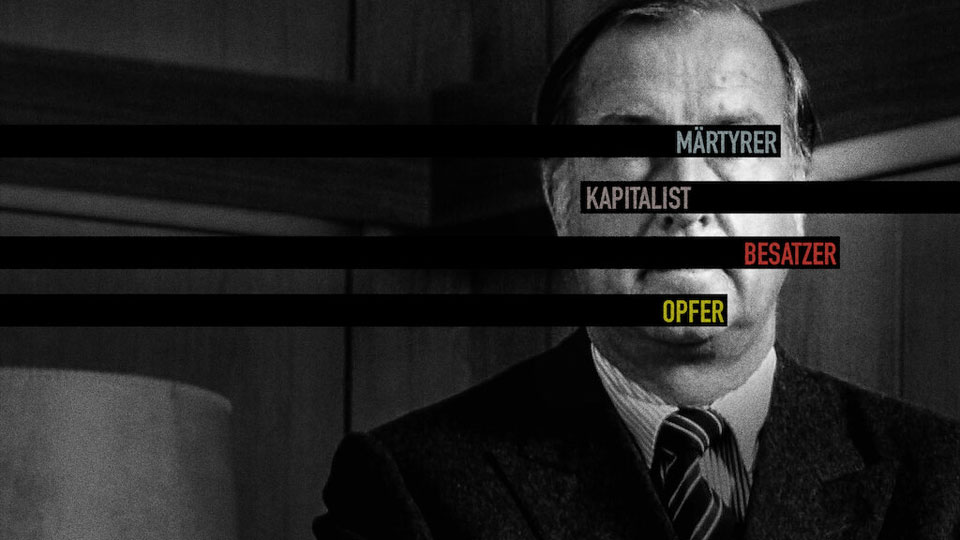
A Perfect Crime, a new four-part documentary series on Netflix about the 1991 assassination of German politician Detlev Rohwedder, surprisingly offers critical viewpoints about German reunification.
October 3 marked the 30th anniversary of the reunification of the former German Democratic Republic (East Germany) and the Federal Republic of Germany (West Germany). While German reunification is recognized as one of the major events that marked the end of the Cold War, many East Germans were opposed to what they considered the annexation of their country by the West. In A Perfect Crime, we hear some of those dissenting voices and discover why reunification was catastrophic for many East Germans.
Rohwedder was chairman of the Treuhandanstalt (“Trust Agency”), the government agency that oversaw the denationalization and privatization of East Germany’s state industries in the months leading to reunification. The beneficiaries of this process were West German capitalists, while millions of East Germans abruptly and permanently lost their jobs. Masses of unemployed East Germans regularly protested in front of the Treuhandanstalt headquarters in Berlin, where Rohwedder and his colleagues sold off East German firms with no concern about the dire consequences for workers, their families, and communities.
On the evening of April 1, 1991, Rohwedder was fatally shot as he stood near the window of his home library in an exclusive neighborhood of Düsseldorf, a city in West Germany. Evidence found at the scene implicated the Red Army Faction (often called the Baader-Meinhof Group), a West German militant anti-capitalist group founded in the early 1970s. But Rohwedder’s killing has been likened to the assassination of John F. Kennedy, as many unanswered questions about the official version of events remain to this day.
While A Perfect Crime focuses on Rohwedder’s assassination, it also offers insights into life in the former GDR and the realities of reunification for many East Germans. Unlike most shows about East Germany on Netflix and other streaming sites, which either depict its citizens as constantly spying on each other or always trying to “escape” to the West (most notoriously, the film The Lives of Others), the East Germans we meet in A Perfect Crime were proud of their nation’s achievements, wanted to reform (and not dismantle) its socialist system, and opposed reunification.
The first episode (“Martyr”) introduces viewers to Rohwedder and the work of the Treuhandanstalt. The subsequent episodes each explore a different theory about who may have been responsible for killing Rohwedder: the Red Army Faction (Episode 2, “Capitalist”); former agents of the East German Ministry for State Security, popularly known as the “Stasi” (Episode 3, “Occupier”); or mercenaries hired by the West German government itself (Episode 4, “Victim”). It is up to viewers to decide which theory sounds most plausible.
In each episode, we hear from East Germans who were directly involved in the reunification process or negatively impacted by it. In dramatic news footage from the time, we see unemployed East German workers, distraught and in tears, contemplating suicide. One woman proclaims, “We’ve never been screwed like this before!” Indeed, Peter-Michael Diestel, the last Interior Minister of the GDR, laments, “Many people were just fired and got no recognition for their life’s work.”

One of those people was Lt. Col. Eberhard Böttcher, who rose through the ranks of the East German Ministry of State Security. In A Perfect Crime, he explains, “My sole reason for joining the Stasi was my deep wish to prevent yet another war.” When West German security agencies took over the East and all Stasi employees lost their jobs and were demonized by the capitalist media, “My world came crashing down,” Böttcher says. After reunification, numerous former Stasi agents were employed as private security guards by West German capitalists.
Many East Germans were proud of their history of resistance to Nazism and several interviewees in the series highlight the political differences between the two Germanys. Kurt Hillmann, a Jewish official in East Germany’s Ministry of Foreign Trade, states, “The GDR was an anti-fascist state and that made it the better Germany.”
In A Perfect Crime, we learn that not all East Germans were longing for capitalism and unity with West Germany but rather wanted to protect, reform, and strengthen East German socialism. Beyond the individual voices, such as those quoted above, the series features footage of the “Monday protests,” the mass demonstrations during 1991, when tens of thousands of East Germans called for the resignation of German Chancellor Helmut Kohl, the architect of reunification, and new elections. Kohl dismissed their demands as “absurd,” and East Germans got their first taste of so-called western democracy.
A gripping true-crime story, “A Perfect Crime” is entertaining and informative as it sheds light on a tumultuous and complex period in recent German history.












Comments